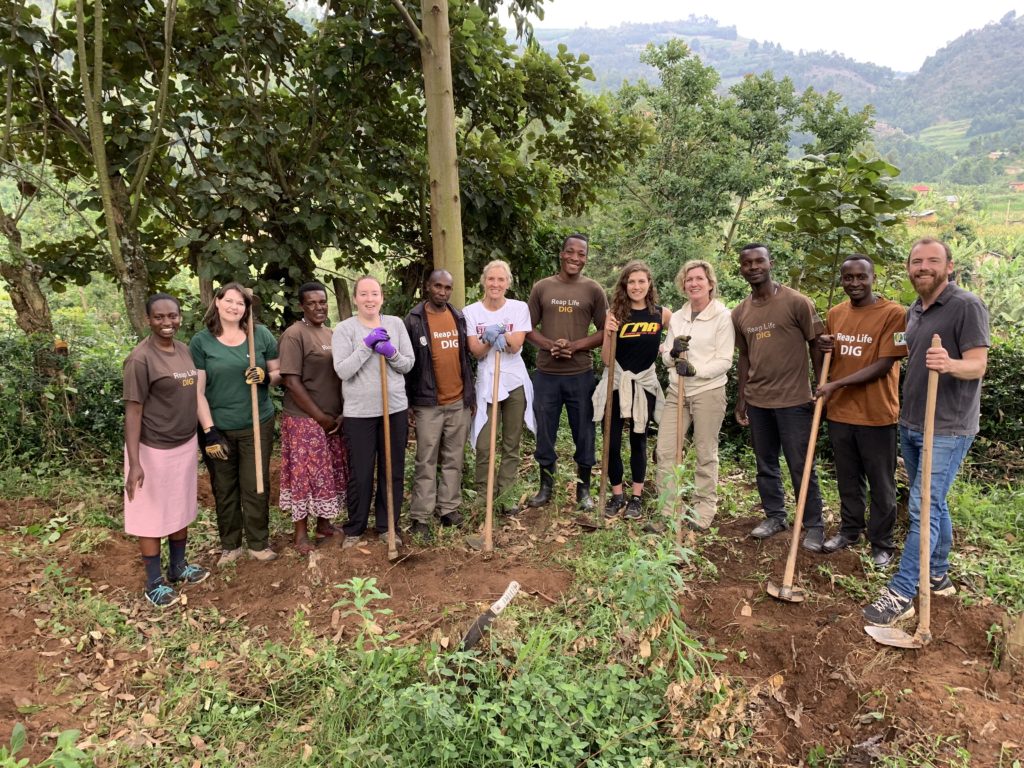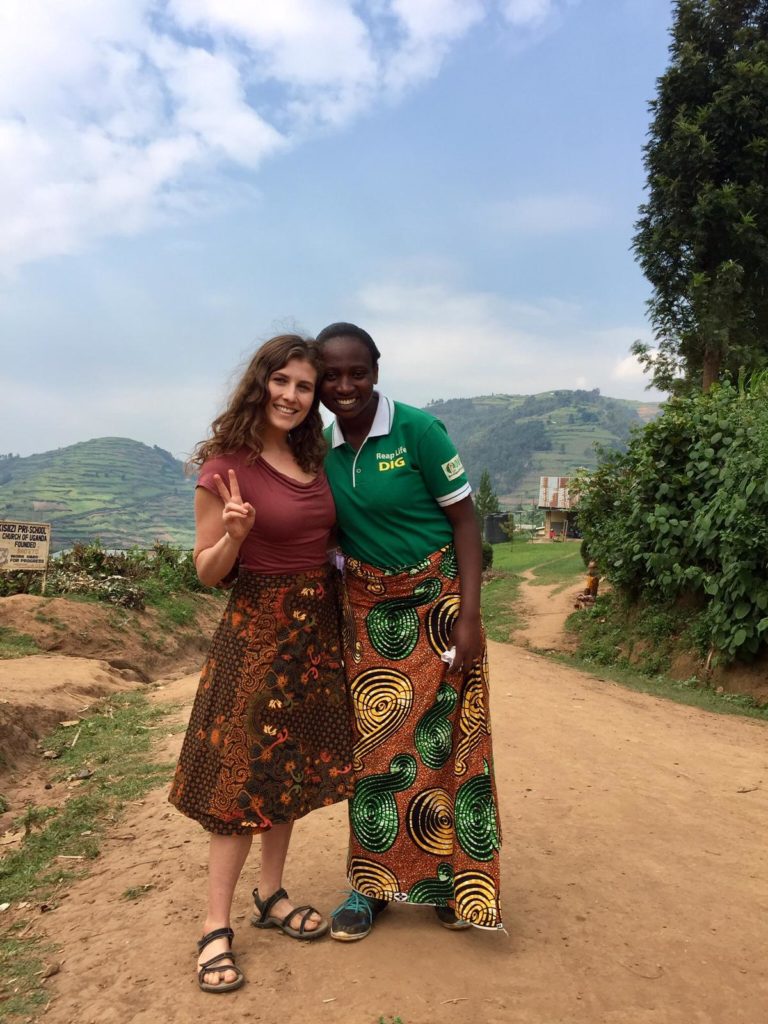Perspective written by DIG intern, Shelby Evans
Supporting the Ugandan team over the course of three months to learn how they listen, respond, and co-create helped me understand international development at the grassroots level. Together, through this partnership, we created systems that would go beyond sharing the technical work of DIG but sharing how DIG’s program is transformative in people’s lives.
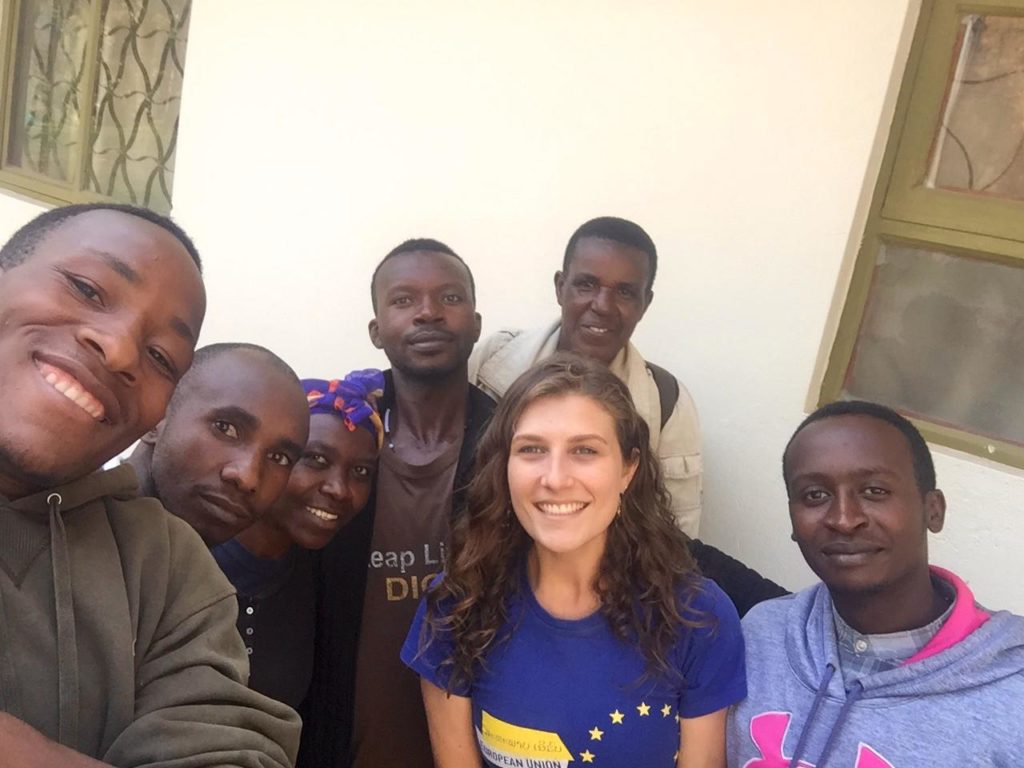
My internship project, graciously supported by the Eleanor Crook Foundation who supports practical experience around global food security, aimed to assist DIG in telling the story of their work around DIG’s five pillars of impact: food security, nutrition, health, economic empowerment, and community cohesion.
I was greeted by the smile of DIG’s Uganda Program Manager, Gloria Mushabe, who came to be a valued friend during my time working as a Communication Officer intern with DIG. We traveled together to the office where I met the local facilitator team: Jane, Clever, Amos, Pacras, and Andrew. I soon came to understand the Ugandan team as my guides and me as their resource as well. Every team member brought a spirit of authenticity, their own unique skills, and commitment to the cause.
Working with the team I could feel the team’s openness and drive to improve and was motivated to improvise a Q & A session with quick writing tips that I eventually molded into a four-part story writing training module.
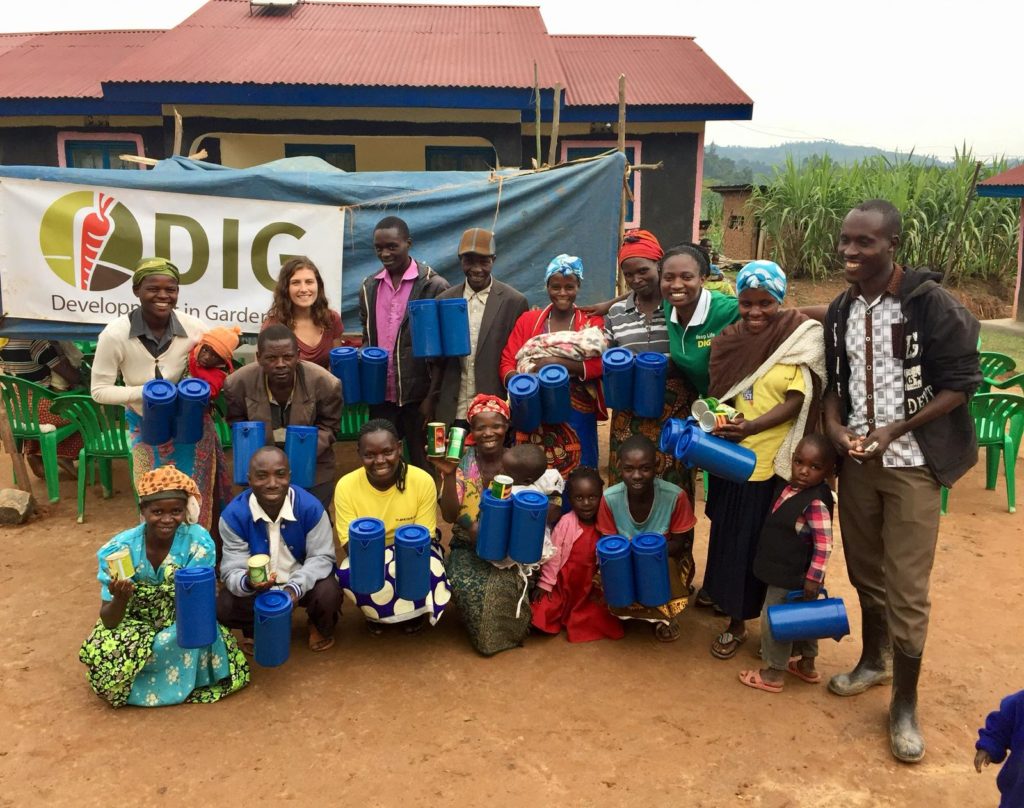
Woven into these very busy days of sharing experiences and understanding with the staff, was my experience with the farmers. I conducted several interviews a day lasting about an hour or so each. I also got to know the farmers on a more intimate level beyond the trainings, by attending graduations, touring home gardens, and chatting with community leaders about their projects.
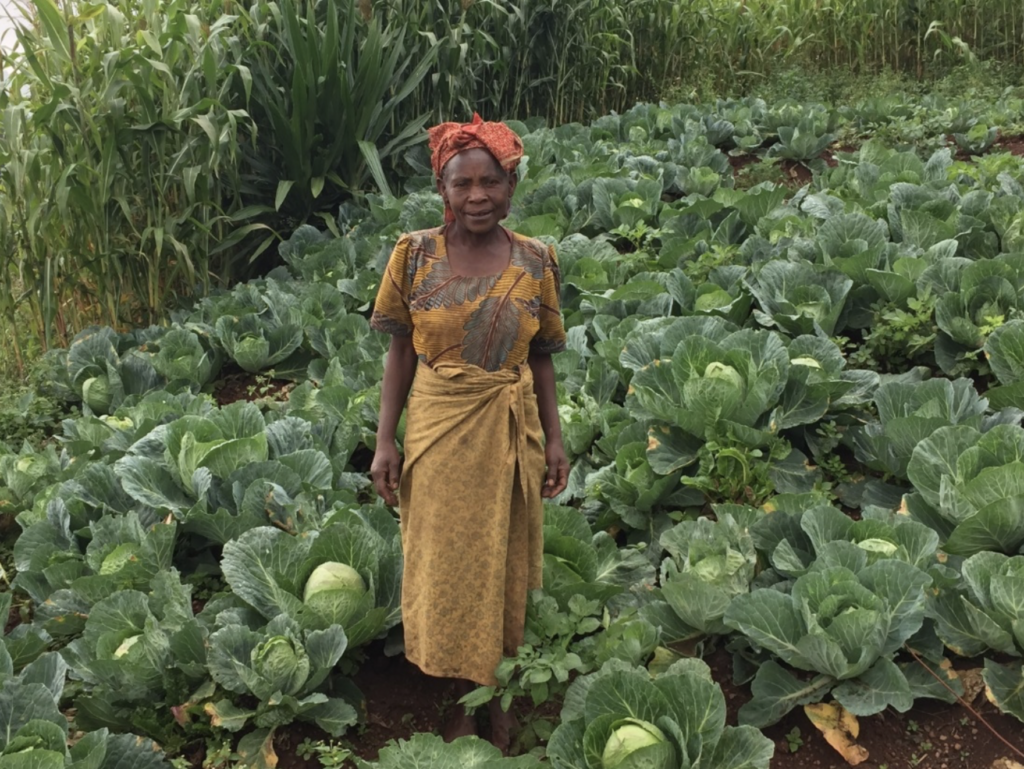
On my first day in the field, I was able to learn how DIGs model directly addresses the needs of farmers. After traveling a distance on the back of a motorbike and traversing around mountainous scenes, I had my first interview with Serina, a Batwa farmer who was about to graduate from DIG’s third phase. Together, Gloria and I were able to learn about how the cabbages, beets, and spinach Serina grew deeply impacted the lives of her and her family. Through a translated exchange, I heard the word kwashiorkor for the first time of many, discovering that it’s the name of a disease brought on by malnutrition that affects children. Prior to Serina’s involvement with DIG, her children faced this condition, but with greater access to nutritious food, they were now recovering. Throughout my many interviews with farmers, increased nutrition for their children and their family continued to emerge as one of the reasons why farmers have stuck with the DIG program. Through these discussions, it’s clear that DIG is addresses an immediate need; by focusing not just on farming, but on nutrition-sensitive farming, DIG is serving families worldwide.
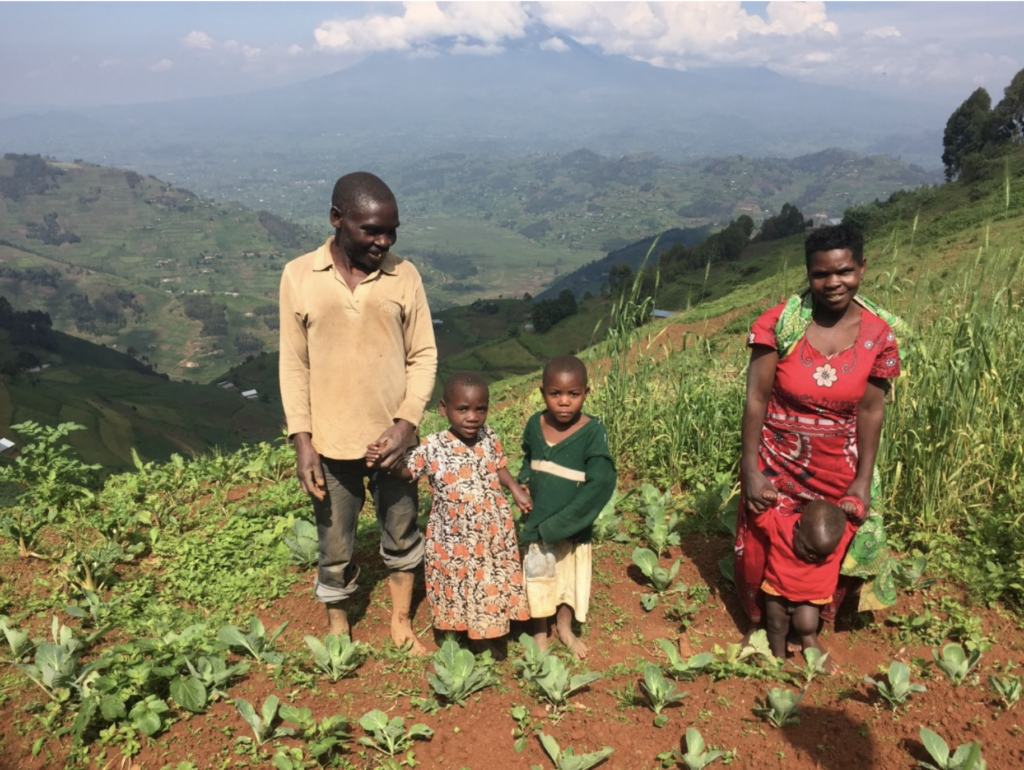
In addition to one on one interviews, I also hosted many partner interviews, to better understand how DIGs impact may effect men and women differently within the same households. By understanding the different challenges, motivations, and benefits that men and women face, DIG teams on the ground can further adapt their programs for men and for women. I met Yohana and Judith, a couple with a modest but productive garden. Gloria explained to me that many Batwa farmers are allowed only small plots of land, so maintaining what they have is incredibly important. Yohana noted that if he hadn’t been using the techniques he learned from DIG, his soil would have eroded, and all the vegetables would have washed away with the rain. Judith chimed in, “our small piece of land could have easily flooded, but now it doesn’t. Before, flooding meant no eating.” His family’s small plot has made it possible for the family to sustain themselves and Yohana even bragged that he shares vegetables with his neighbors for free.
I also hosted group interviews, to learn about the impact DIG has on entire communities. One farmer spoke of the changes in their community, “other groups used to look at us like we weren’t people because we would have to beg for food. Now we can be proud. Those who used to look at us badly now ask us for vegetables.” The expression of pride and newfound security rang through every community we visited that week. I was struck with the amazing resilience of the farmers and inspired by their assertion of empowerment.
What I experienced that week were small glimpses into the work that DIG does. The circumstances are shifting and jumping in feet first is the best way to understand the dynamics of each farmer, community, and region. The days are filled with opportunities to witness, engage, and be inspired by the purposeful work that this nonprofit is doing. It helped me better understand international development at the grassroots level. Each person; farmer, facilitator, and donor, possess something that’s key to keeping the work going. I feel if my contribution helped in any small way, it was well worth it, because the work is transformative for everyone involved.
